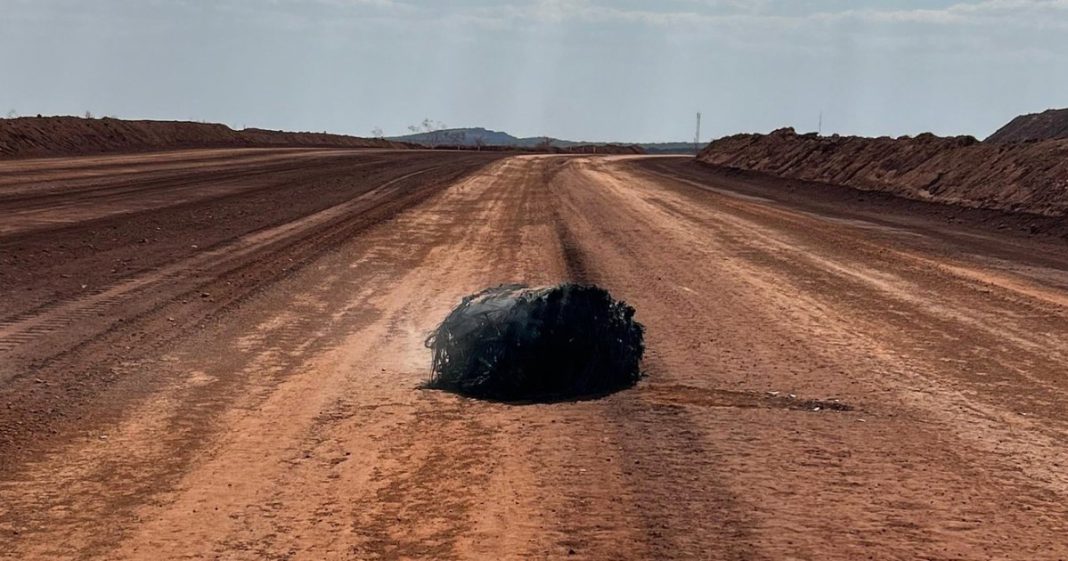Key Takeaways
- Large suspected space debris found in Australian desert
- Object likely a spent rocket propellant tank or pressure vessel
- Discovery highlights growing concerns about space debris risks
A substantial piece of suspected space debris has been discovered in Australia’s remote Pilbara region, confirmed by the country’s space agency on Monday. The charred object, found smoldering in the desert, is believed to be part of a spent rocket launch vehicle.
The Australian Space Agency identified the debris as “likely a propellant tank or pressure vessel from a space launch vehicle” in a social media statement. Officials are collaborating with international space agencies and local authorities to determine the object’s exact origin and nature.
Discovery and Investigation
Mine workers discovered the object on a remote access road on Saturday. Local authorities confirmed the debris poses no public safety threat, according to Sky News reports.
The agency has not disclosed the object’s specific dimensions or weight but emphasized its commitment to investigating the incident thoroughly. “We are working to determine the exact nature of the debris and its origin,” the agency stated.
The Growing Space Debris Problem
While space agencies typically plan for rocket components to burn up during atmospheric re-entry, fragments sometimes survive the fiery descent. Finding space debris on land remains relatively uncommon since oceans cover most of Earth’s surface.
Recent incidents highlight increasing concerns:
- Summer 2023: A 90-pound debris slab from a SpaceX Crew Dragon capsule was found on a North Carolina mountain trail
- March 2024: A 1.6-pound metal piece crashed through a Florida home, traced to an International Space Station cargo pallet
Orbital Debris Risks
Low Earth orbit contains tens of thousands of space junk pieces and millions of smaller fragments traveling at speeds up to 18,000 mph. This debris cloud threatens operational satellites, space stations, and astronaut safety.
NASA and other space agencies have responded by funding research and technology demonstrations for orbital cleanup operations. The Australian Space Agency reinforced its commitment to “long-term sustainability of outer space activities, including debris mitigation” in international discussions.




